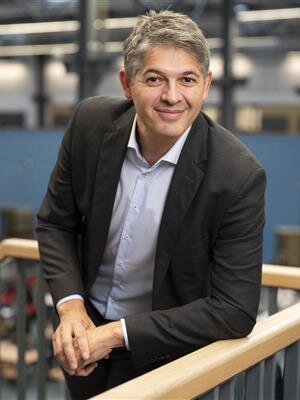PERISCOPE: Understanding COVID-19 through data-driven design
Since the emergence of COVID-19 in Europe earlier this year, both natural and social scientists have made great efforts to better understand its impact. However, significant knowledge gaps remain, meaning governments may not always have the information needed to make urgent decisions. It’s clear that a deeper understanding of the pandemic is needed – no easy feat in an increasingly complex world.
A TU Delft team, led by the Faculty of Industrial Design Engineering’s Professor Alessandro Bozzon will be tackling this challenge via PERISCOPE. This new large-scale research initiative brings together 32 institutions and applies a multi-disciplinary, data-driven approach to mapping the pandemic’s unexpected impacts. The project has been granted full funding by the European Commission under the Coronavirus Global Response initiative launched in May 2020 – with maximum scores across the board.
At the core of the PERISCOPE project is an approach that balances theoretical and experimental knowledge. Drawing upon diverse perspectives – clinical, epidemiological, socio-economic and political, to name a few – PERISCOPE seeks to comprehensively map and analyse the consequences of COVID-19. The overarching goal of the project is to develop guidance for policy makers and healthcare authorities on mitigating these consequences, as well as improving Europe’s preparedness for future health crises. Further to this, PERISCOPE will provide a key opportunity to reflect on government responses across the many domains affected by the pandemic, with the intention to preserve and advocate for evidence-based policymaking.
As the PERISCOPE project shows, data is a key resource in understanding and responding to COVID-19. A second data-driven project, recently acquired by Alessandro’s team of researchers is ViruSurf. This EIT project builds on the foundations laid by the Social Distancing Platform and the Equal Life project proposes a system for searching and analysing virus sequences that can track future mutations of COVID-19 and their specific health risks. Researchers from TU Delft and Politecnico di Milano will collaborate with virologists and market consultants around the world to develop the ViruSurf system.
Professor Alessandro Bozzon comments: “These projects will showcase how designing for societal change (in this case, designing for a society resilient to airborne diseases like COVID-19) requires the integration of data and AI technology and design knowledge.”
This project will receive funding from the European Union’s Horizon 2020 research and innovation programme under grant agreement No 101016233.



Alessandro Bozzon
- +31 (0)15 27 87822
- a.bozzon@tudelft.nl
- Personal website
-
Room B-3-370
Working days: M T W T F
"Twenty years from now you will be more disappointed by the things you didn't do than by the ones you did do."
Gerd Kortuem
Available on: Mon-Tue-Wed-Thu-Fri

